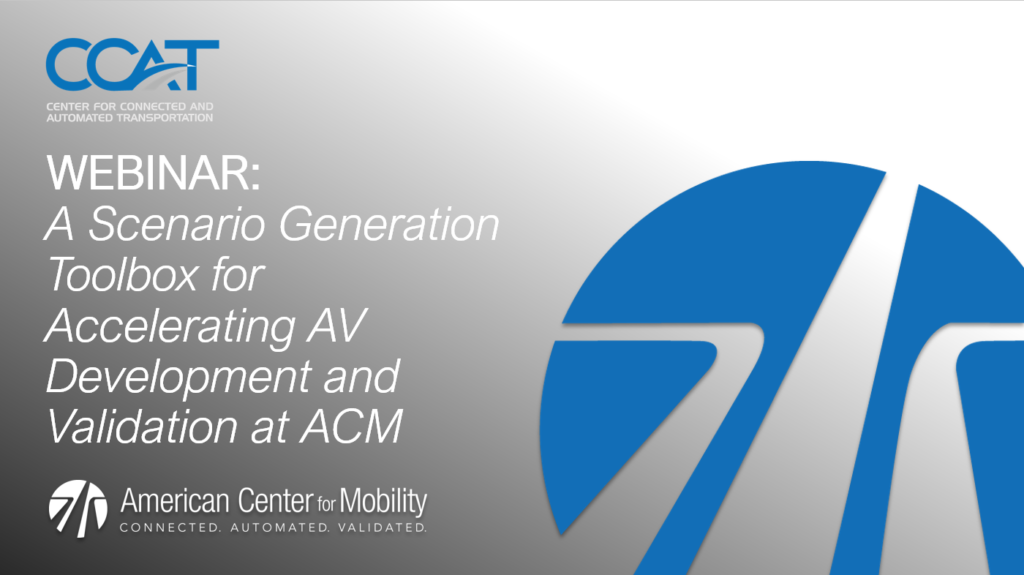WEBINAR: A Scenario Generation Toolbox for Accelerating AV Development and Validation at ACM

COMPLIMENTARY WEBINAR: Wednesday, September 1, 2021 – 1:00 PM EST
Scenario generation is essential for testing and evaluation of automated vehicles (AVs), but how to generate realistic and trustworthy scenarios efficiently has been an open question. To address this challenge the University of Michigan’s Center for Connected and Automated Transportation (CCAT) has developed a scenario generation toolbox that can accelerate the development and validation of automated vehicle technologies.
This toolbox has been implemented at the American Center for Mobility (ACM) and includes an augmented reality (AR) testing platform and the naturalistic and adversarial driving environment (NADE). With AR, an AV can now be tested at a physical test track with interaction from virtual traffic flow.
With NADE, the maneuvers of virtual background vehicles are controlled intelligently, with most of scenarios being generated from naturalistic driving data, and at selected moments, adversarial scenarios are generated to challenge the AV under test. The theory behind NADE ensures both the unbiasedness and the efficiency of the testing scenario generation. With this toolbox, every testing mile at ACM can be converted into thousands of equivalent miles on public roads, which can significantly reduce development costs and shorten the development cycle.
This webinar will introduce this advanced technology and demonstrate its effectiveness by testing an L4 experiment vehicle at ACM.
